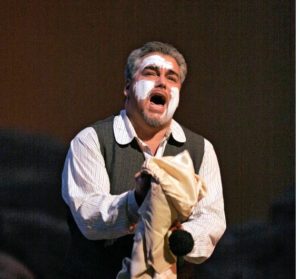
Artist Profile: The Tragic Tale of Tenor Salvatore Licitra
By David SalazarTenor Salvatore Licitra was one of the great losses of the 21st century.
The tenor, born on August 10, 1968, in Switzerland to Sicilian parents, grew up in Milan.
He actually didn’t have any intention of being a singer, reportedly lacking confidence in his vocal abilities. Instead, he started off his career as a graphic artist for Vogue. He would continue taking vocal lessons, enrolled in the Music Academy of Parma and the Corsi Verdiani. He would then enroll at Carlo Bergonzi’s vocal academy and eventually made his debut in Parma in 1998.
In 1999, he debuted at La Scala under Riccardo Muti, famed conductor taking the young tenor under his wing for a number of other works.
The tenor would then make a historic debut at the Metropolitan Opera in 2002. He was flown in to replace Luciano Pavarotti, who had canceled two hours before curtain time. He won major ovations for the performance and would become a major fixture at the Met for the rest of his life. He was slated to premiere a new production of “Il Trovatore” with the company but canceled.
On August 27, 2011, the tenor sustained a severe head injury when he suffered a cerebral hemorrhage while writing his scooter in Sicily. He remained in a coma for several days before being pronounced dead on Sept. 5, 2011. He was 43-years-old.
Major Roles
The Italian tenor specialized in Italian operas. While his work in the Verismo repertoire is well-noted, he was more recognized for his interpretations in the works of Verdi and Puccini. His Cavaradossi in “Tosca” was one of his most-performed roles. Near the end of his life, he performed the role of Calaf in “Turandot” quite frequently.
In the operas of Verdi, his Manrico in “Il Trovatore” and Riccardo in “Un Ballo in Maschera” were his best-loved. He famously sang “Il Trovatore” under Riccardo Muti, omitting iconic high C at the close of “Di Quella Pira.”
Watch and Listen
Here is that historic “Trovatore” under Muti.
And here is a heart-wrenching “E luce van le stelle.”
Categories
Opera Wiki

